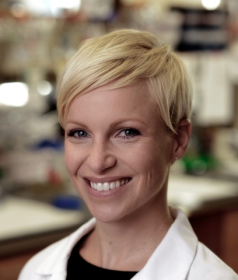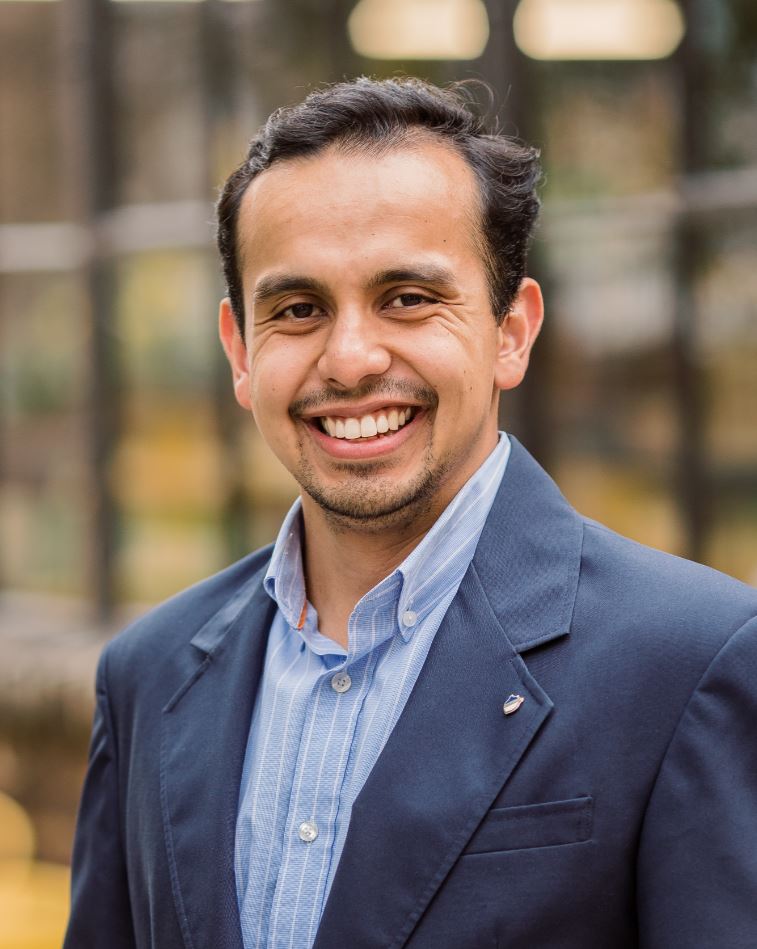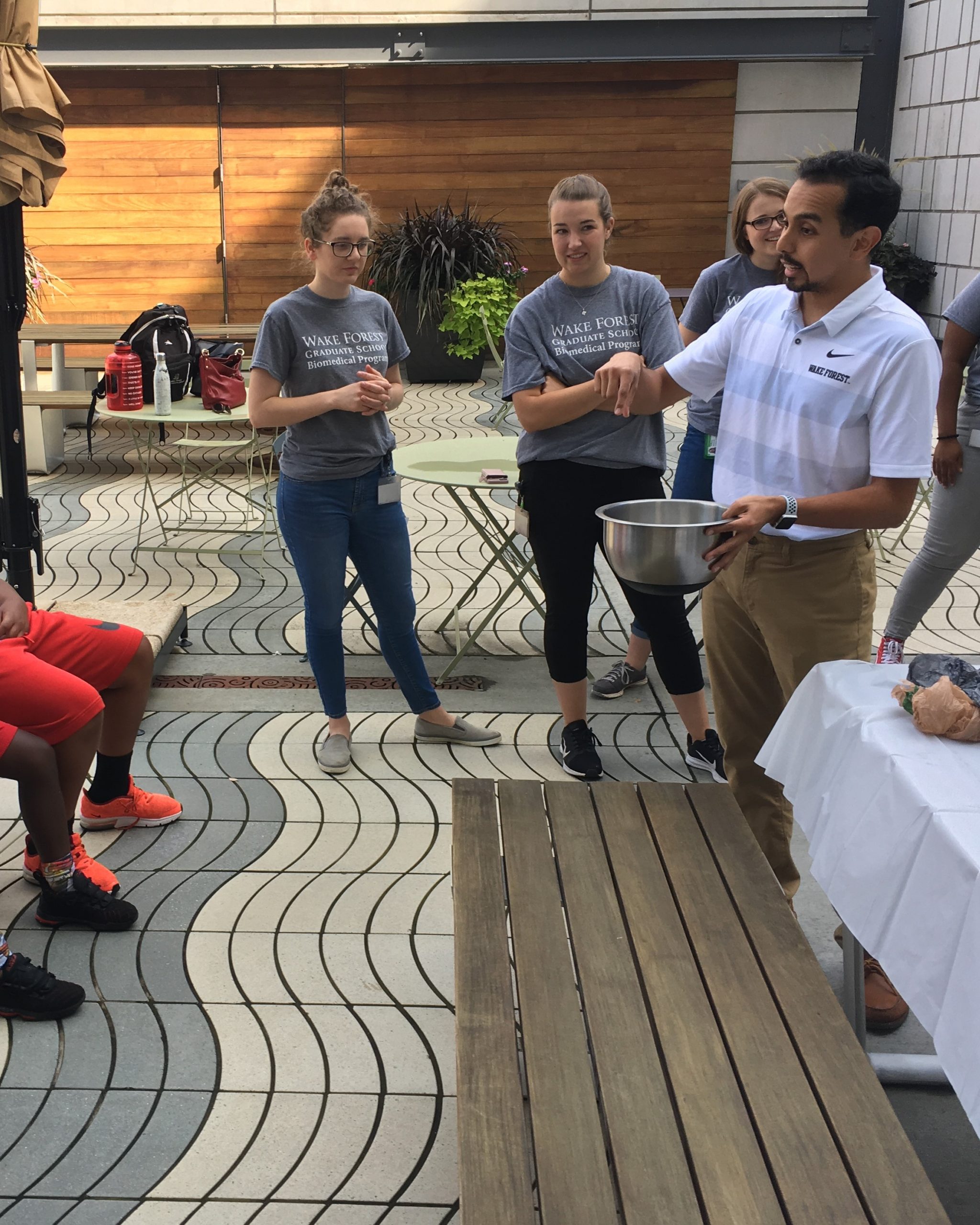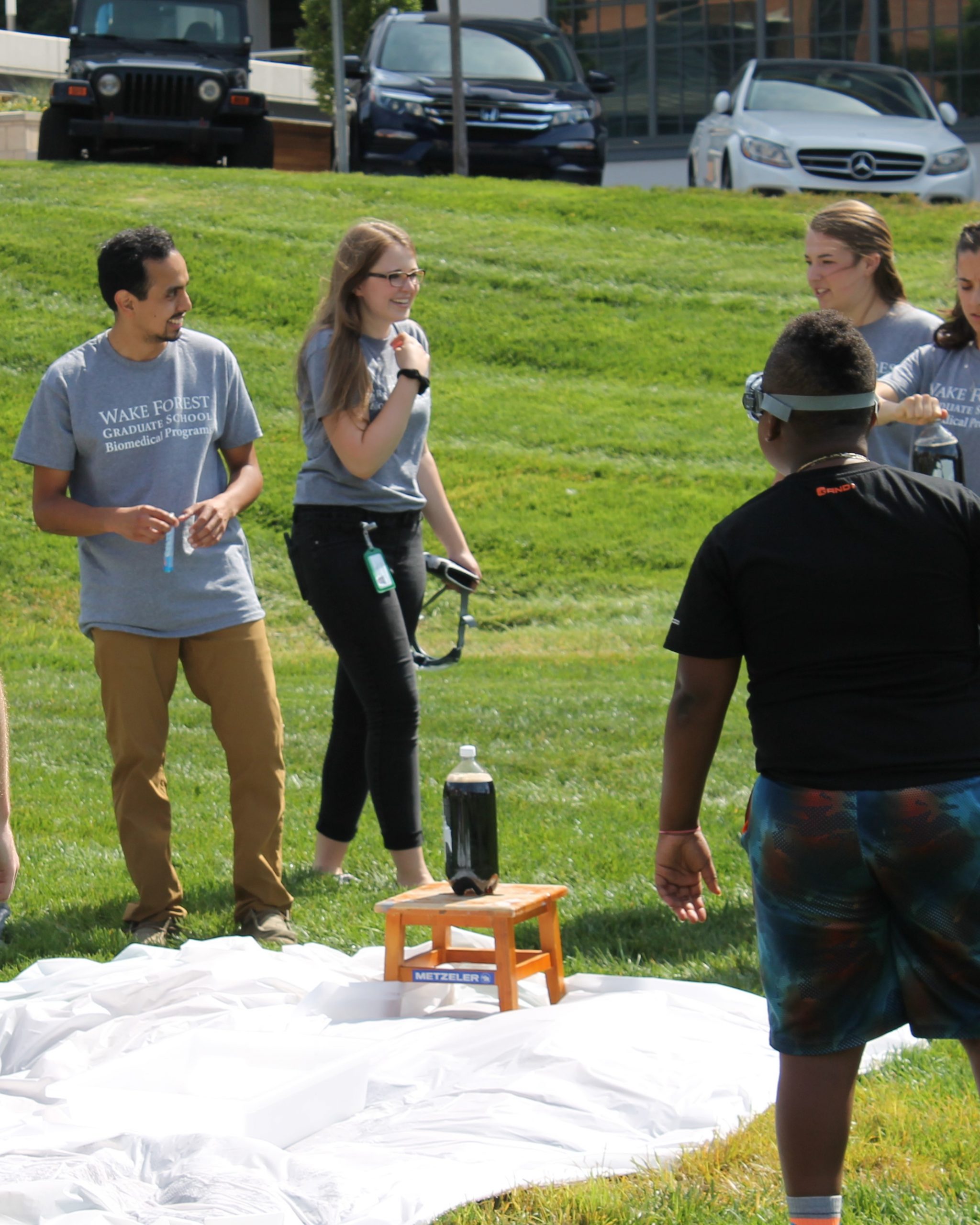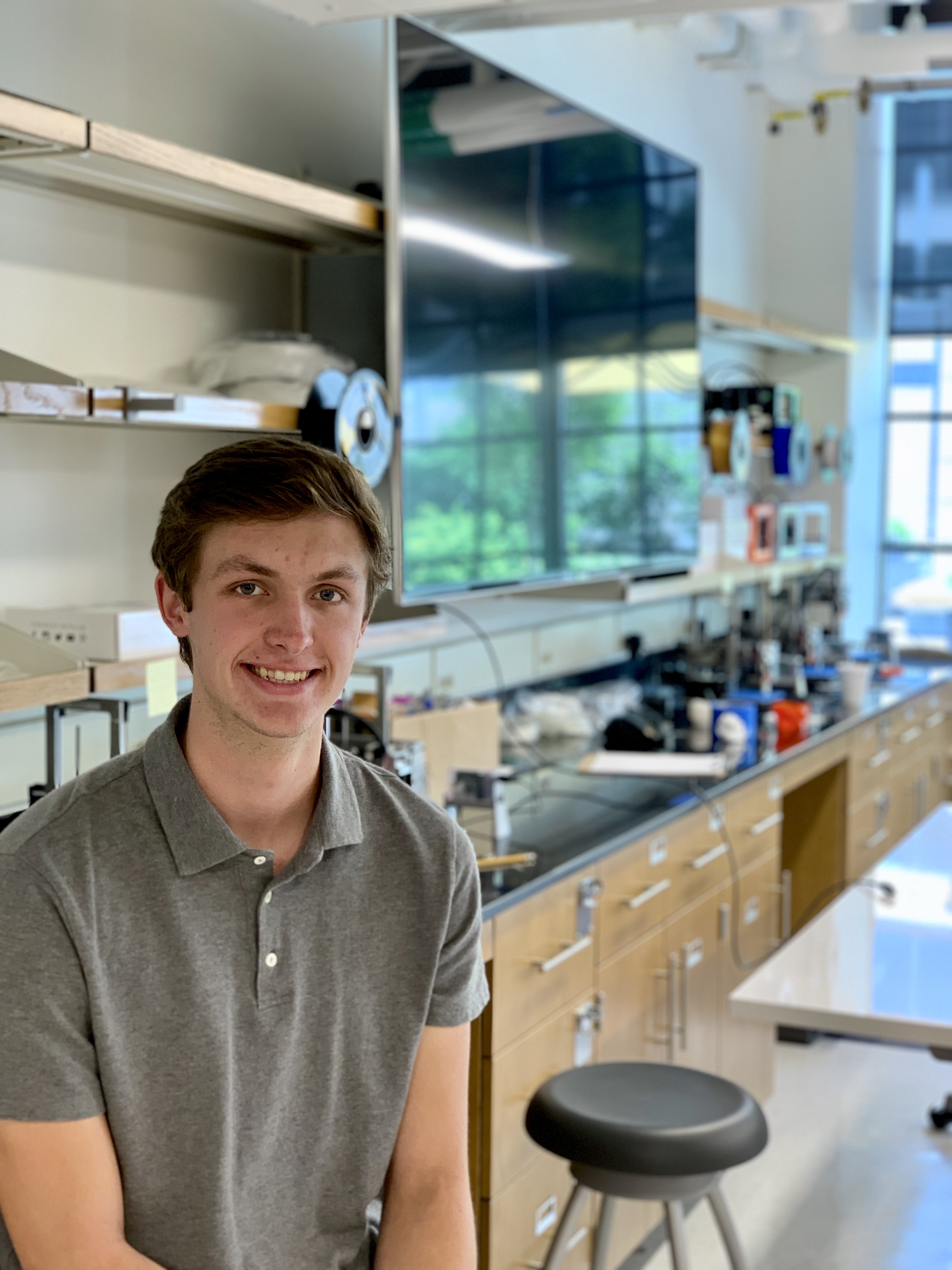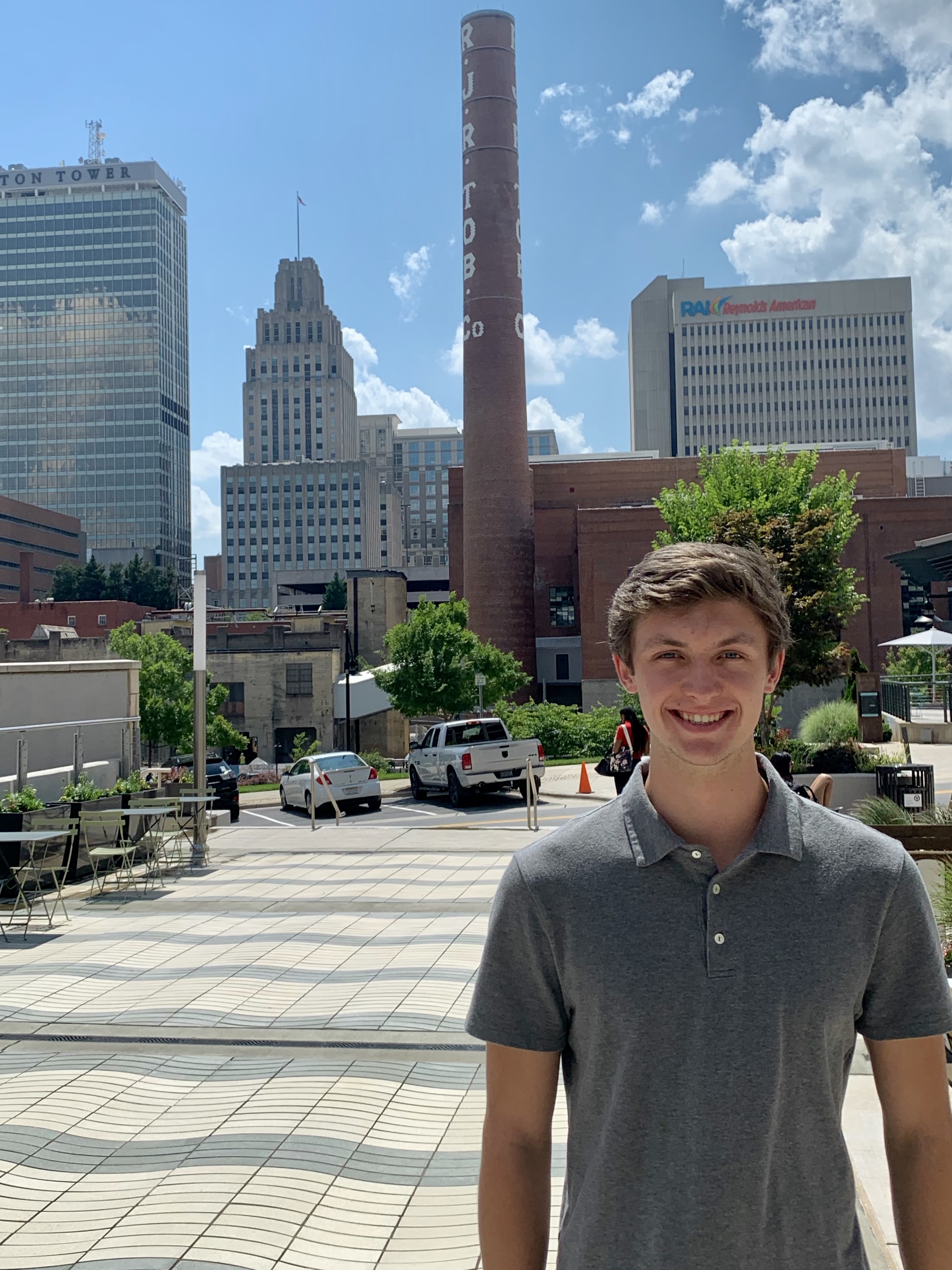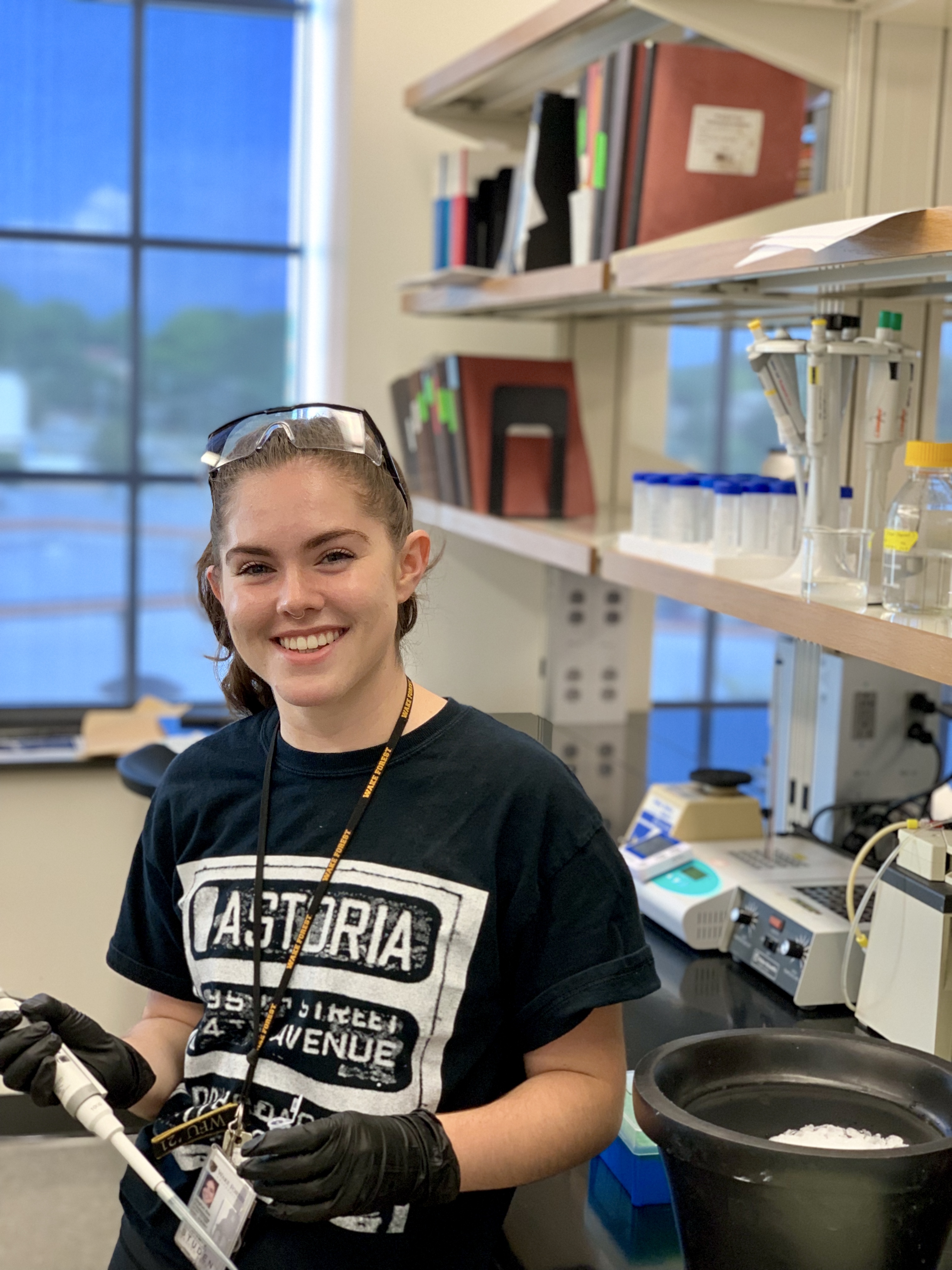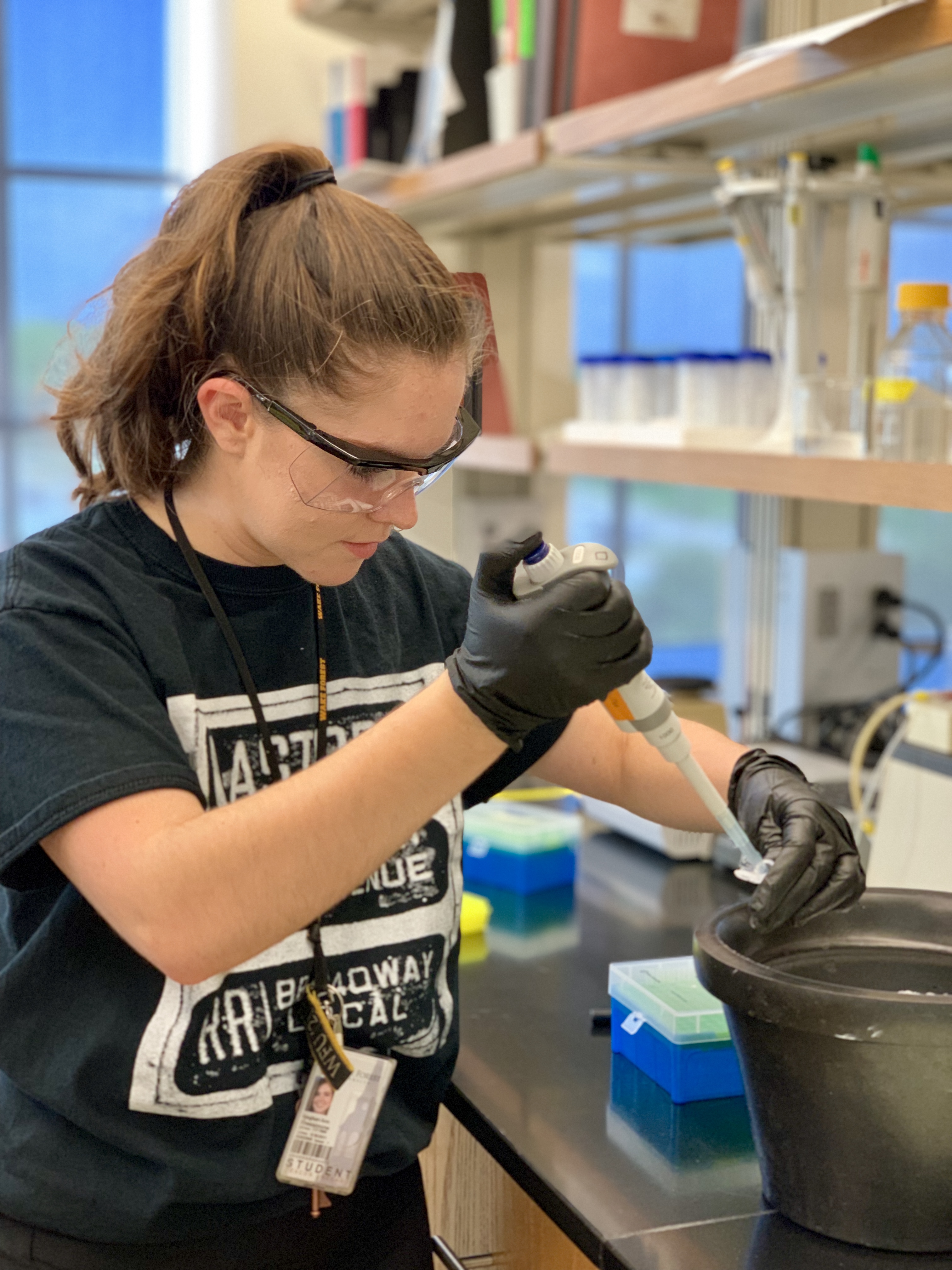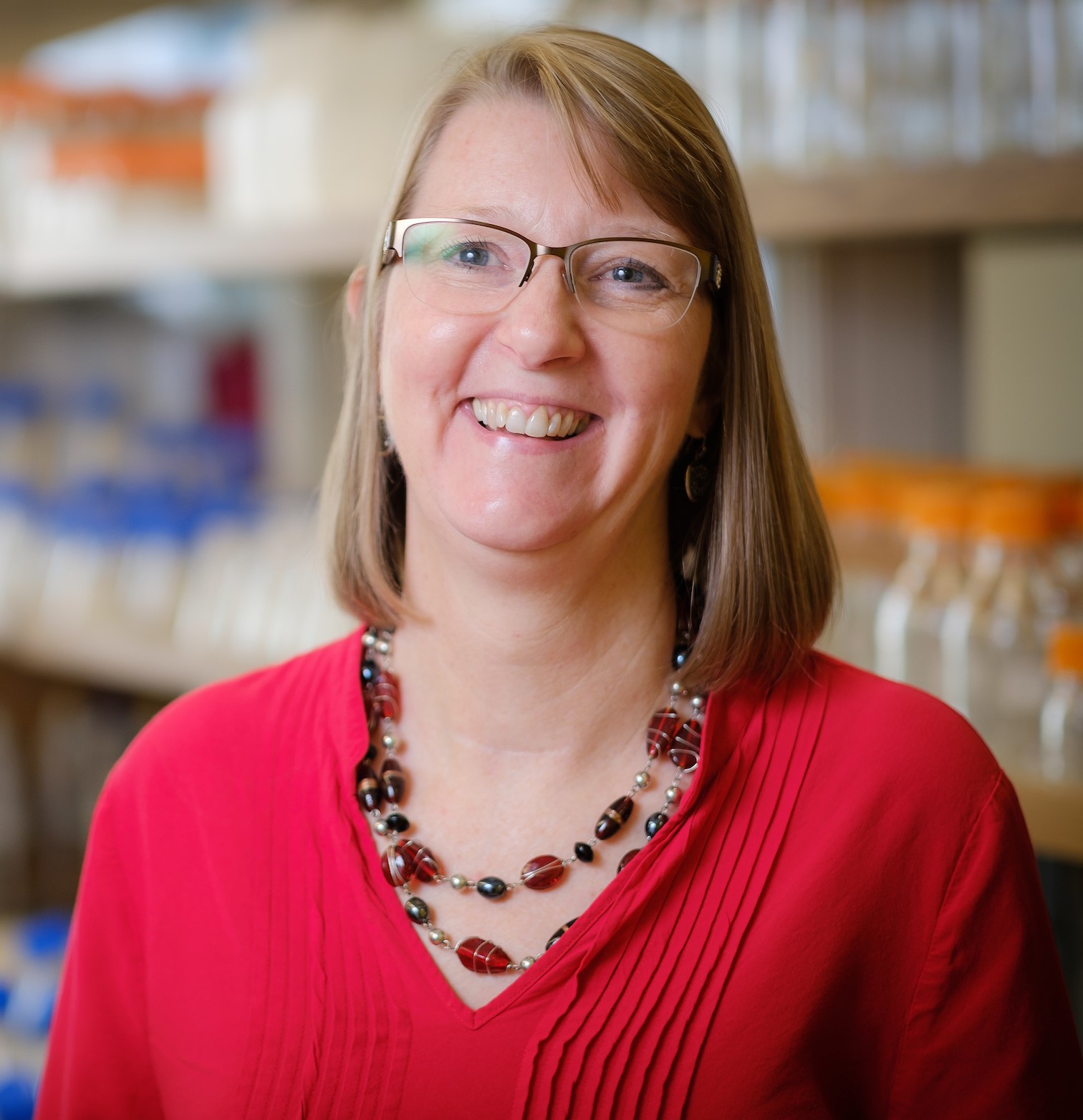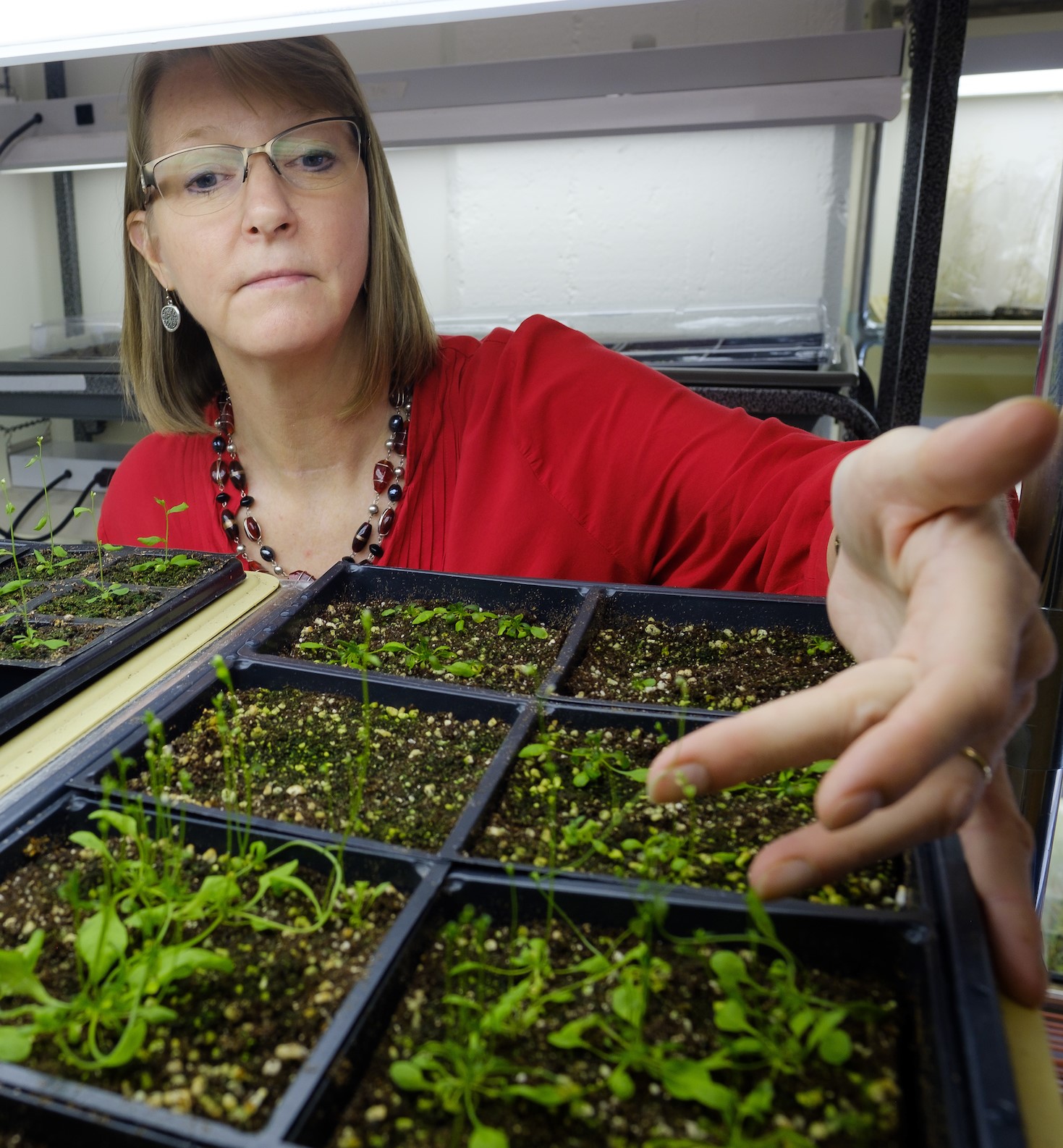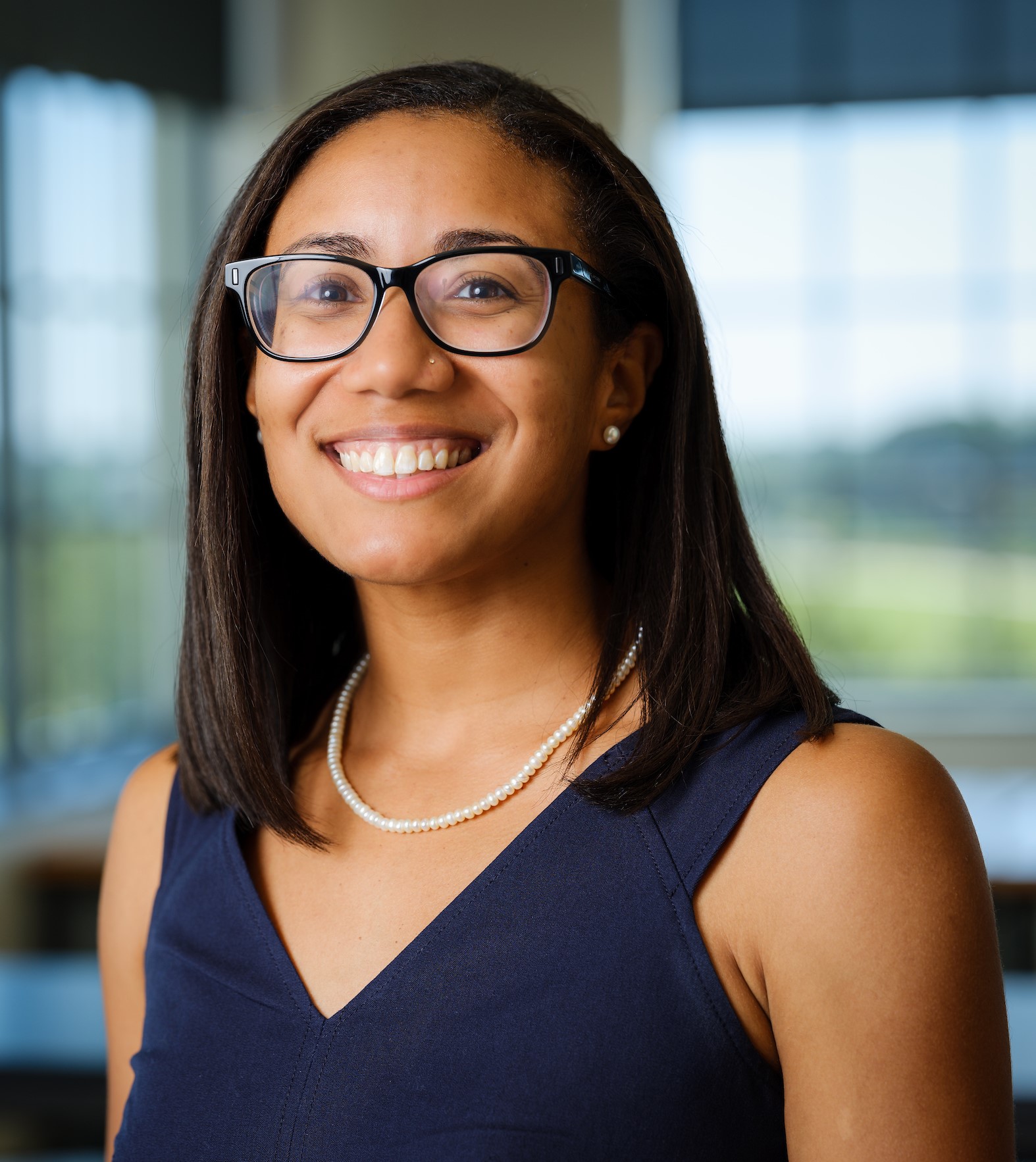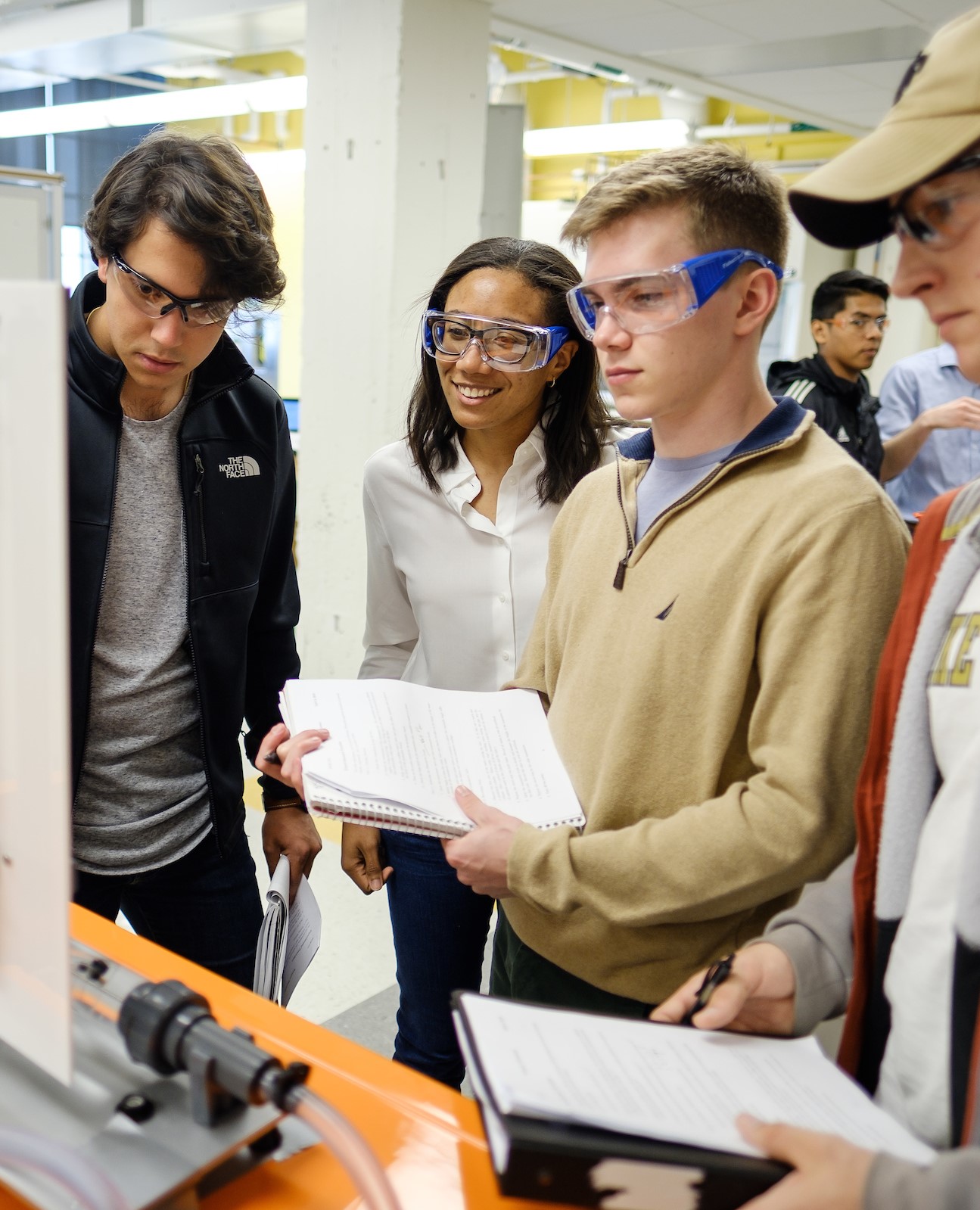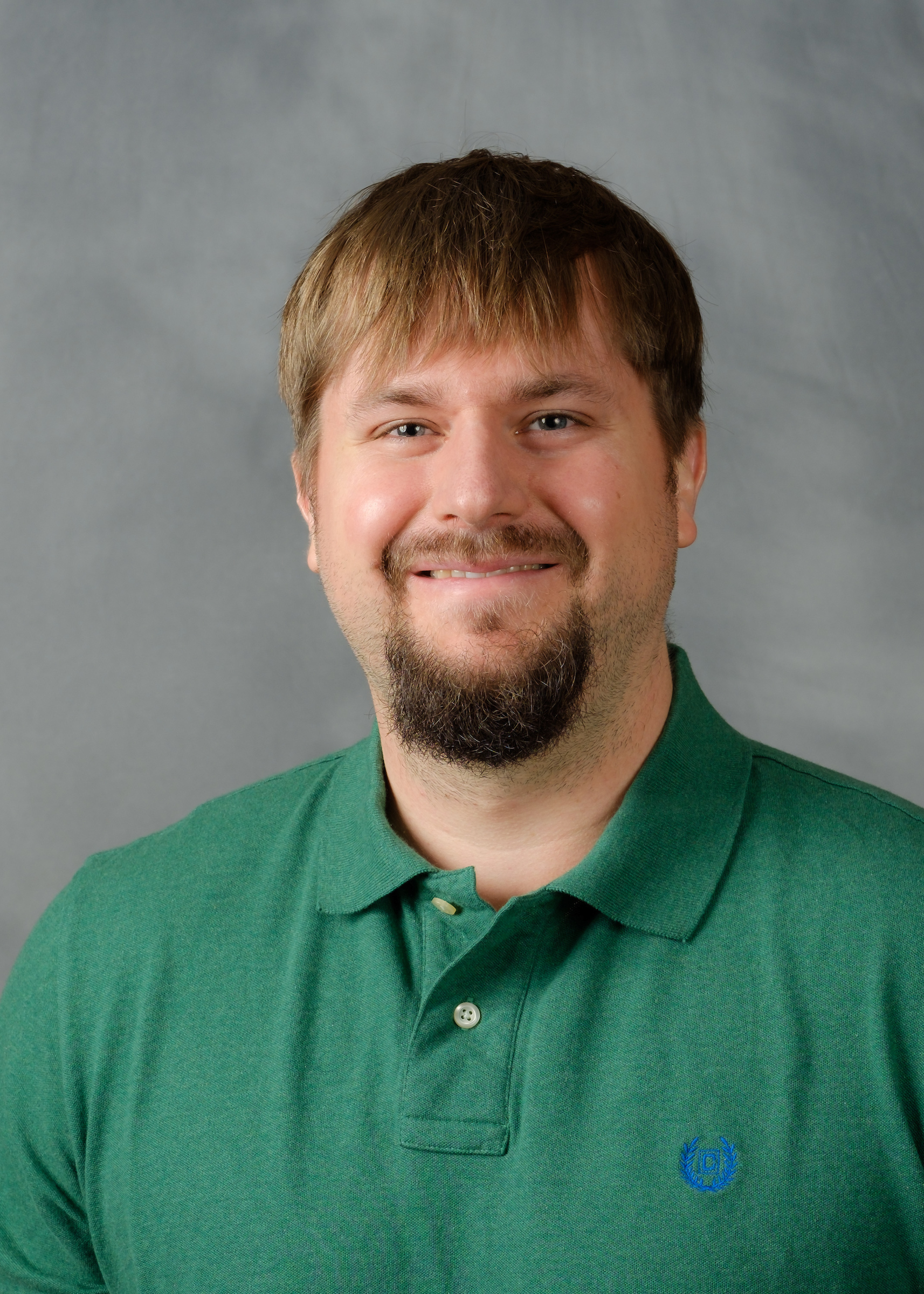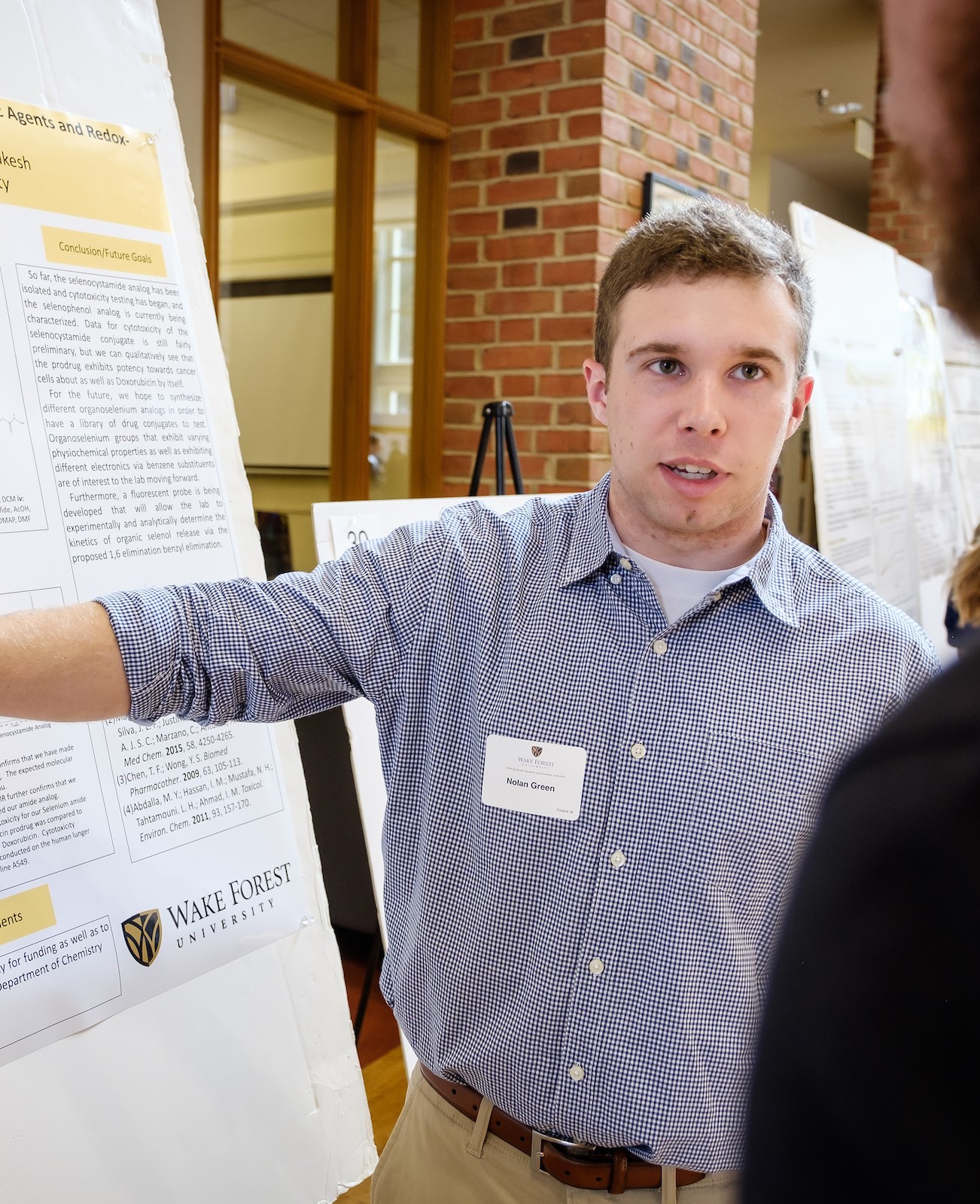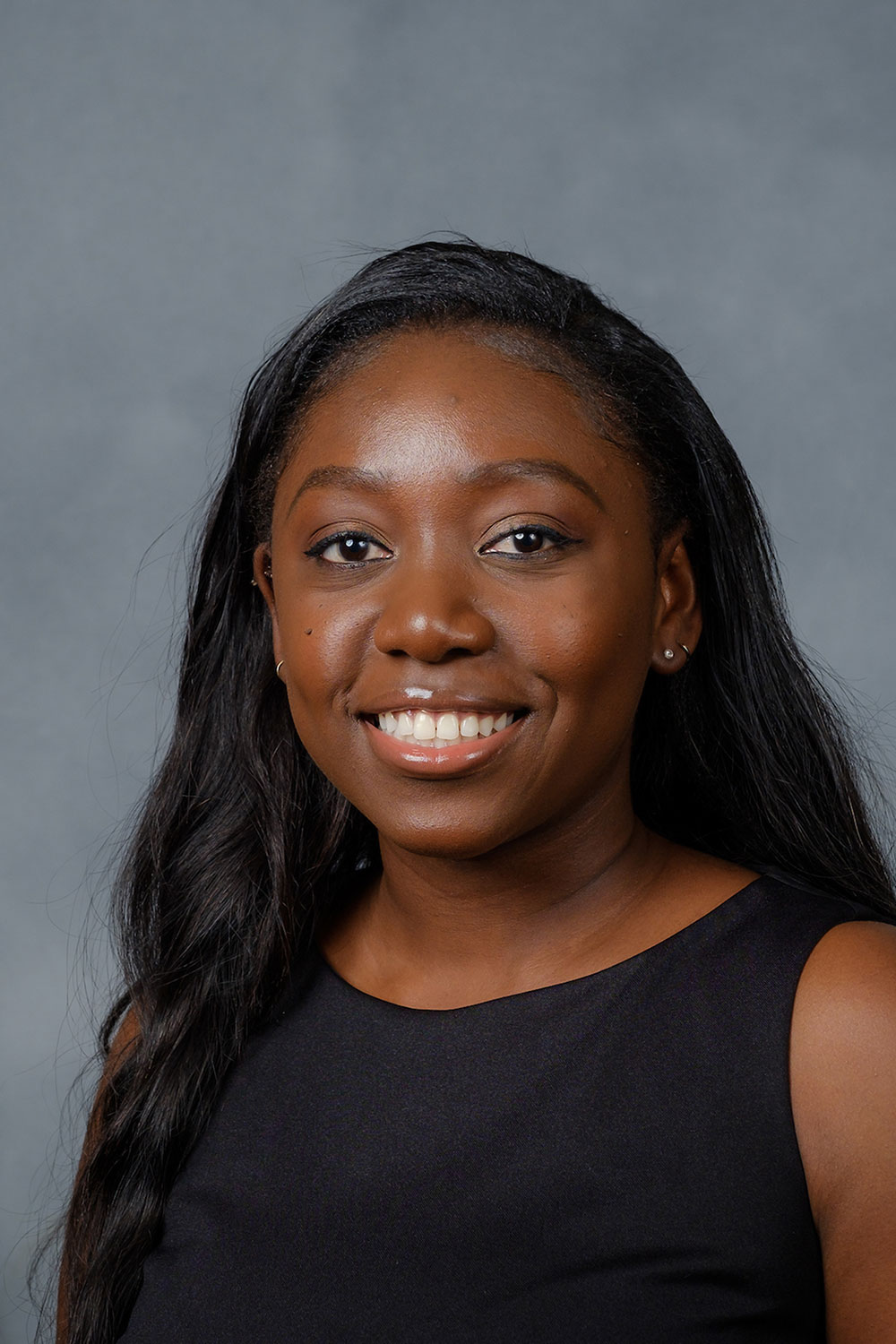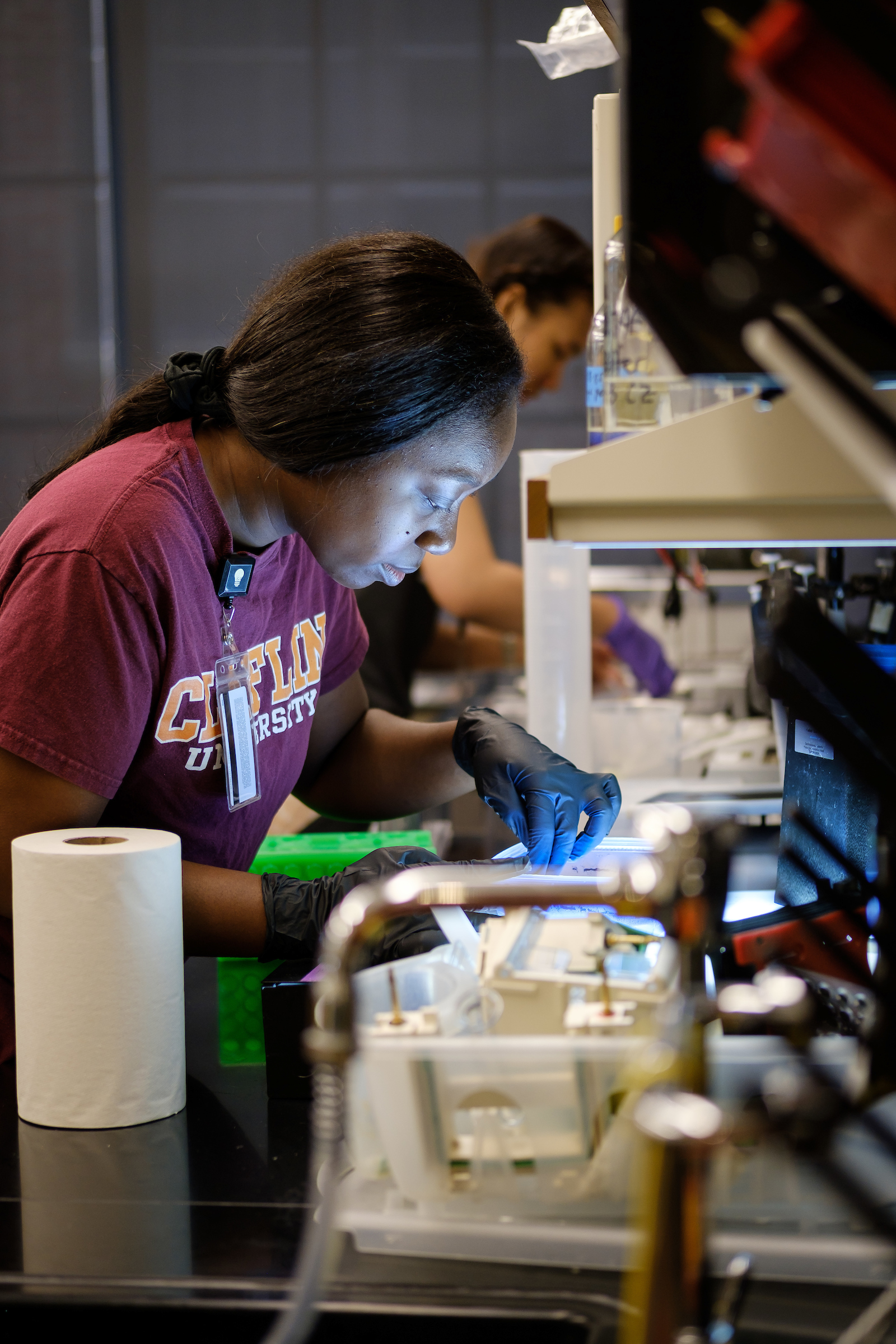Featured Faces of Wake Downtown
Dr. Sarah Esstman
Hometown: Dunedin, Florida
Position: Associate Professor of Biology
Research Focus: I am fascinated with viruses! Isn’t everybody right now? I’ve had a long-standing interest in trying to understand how viruses make copies of themselves when they enter inside of our cells. For the last 10 years, my lab has studied rotaviruses, which are important pathogens in humans. Specifically, these viruses cause diarrhea and vomiting in kids, which can be severe and lead to dehydration and even death. Rotavirus infections are mostly controlled by vaccination in the United States and in other developed countries. However, the vaccines aren’t working as well in children living in underdeveloped world regions, and because they are live-virus vaccines, they can’t be used in immunocompromised kids. So, we’re interested in developing new knowledge about rotavirus that could hopefully spur new prevention and treatment measures. Continue Reading here!
Israel Suarez
Hometown: Winston-Salem, NC
Position: Chemistry Graduate Student in Professor John Lukesh’s Lab and Graduate Student Assistant of The Science of Winston-Salem
Research: My current research involves a lot of work with hydrogen sulfide, a small gasotransmitter in the family of nitric oxide and carbon monoxide, which are very transient molecules. They’re transient because they traverse membranes to reach their intracellular targets very easily so they have a lot of downstream effects. Ironically, these molecules are very toxic in high concentrations – but in low concentrations, they have the potential to elicit desirable effects. In the past 20 years, there has been a lot of research into hydrogen sulfide as a therapeutic – in the late 90s, it was seen to have vasorelaxant, antiapoptotic, and antioxidant effects in low concentrations so a lot of people started focusing on it in what I like to call a “gold rush” of hydrogen sulfide research just because so many people started rushing after it. Continue Reading Here!
Noah Handwerk, ’21
Major: Engineering
Minor: Statistics
Research Mentor: Dr. Lauren Lowman
Research Interests: For the past year I have been investigating the relationship and interplay between flash-droughts and vegetation growth in the United States. To do so, I have been gathering and organizing NASA satellite and local ground sensor data to help improve a model developed by Dr. Lowman.
Favorite thing about Wake Downtown: Being able to take classes downtown three to four times a week allows me to escape from the main campus. I can focus on a field of study I find fascinating with people who share this same excitement in engineering while still being interested in different sub-fields.
Meghan Pressimone, ’21
Major: Chemistry
Minors: Spanish and Studio Art
Research Mentor: Dr. Rebecca Alexander
Research Interests: My project in the Alexander lab in collaboration with Dr. Tom Hollis primarily serves to crystallize and obtain the protein structure Mycoplasma penetrans methionyl tRNA-synthetase, a bifunctional bacterial enzyme that the Alexander lab has worked with for a few years. We know a bit about the enzyme capability, but hope to finish off our exploration with an understanding of substrate delivery, which is where crystallography comes into play.
Favorite thing about Wake Downtown: I love the access that Wake Downtown gives to the downtown area of Winston-Salem. Being on campus can be great, but I love to take a break at Downtown and enjoy the proximity to all the amazing restaurants and cafes in the city.
Dr. Gloria Muday
Hometown: College Park, Maryland
Position: Coordinator of the Biochemistry and Molecular Biology Major, and Director of the Center for Molecular Signaling, as well as a Professor in Biology.
Research Focus: My laboratory is interested in the controls of plant growth and development. We study specialized plant metabolites, including anthocyanins that are purple pigments and their precursors, called flavonols. Flavonols and anthocyanins are potent antioxidants within the plant that defend plants from reactive oxygen species, which can be damaging and produce a stress response. Flavonols and anthocyanins also having beneficial health effects for humans who eat them, since they can act as antioxidants to protect us from oxidative stress. Continue Reading Here!
Dr. Lauren Lowman
Hometown: Middletown, Delaware
Position: Assistant Professor in the Engineering Department. Affiliate Professor in the Physics Department.
Research Focus: I am interested in studying how spatial and temporal changes in water availability impact overall ecosystem health, productivity and sustainability. My goal is to explain how physical water, energy, and carbon exchange pathways between the land-surface and the atmosphere modulate ecosystem responses under different hydroclimatic scenarios (e.g., hurricanes, droughts, fires, etc.). My research follows three thrusts: (1) Numerical and statistical modelling of physical water, energy, and carbon pathways that quantitatively describe physical ecosystems responses to climate variability; (2) Using satellite imagery to detect and quantitatively evaluate changes in hydrology, geomorphology and vegetative states toward understanding the physical drivers of these changes; and (3) Collecting ground-based and aerial measurements of meteorological, vegetative and soil conditions for data assimilation and model validation. Continue Reading Here!
Dr. John Lukesh
Hometown: Milwaukee, Wisconsin
Positions: Assistant Professor of Chemistry, Lower Division Adviser
Research: We are interested in a field of science called Chemical Biology. As the name implies, it is at the interface of both Chemistry and Biology. More specifically, I would say that my group is interested in Redox Chemistry and Sulfur Selenium chemistry, and in particular, our lab has become very interested in studying Hydrogen Sulfide. For a very long time Hydrogen Sulfide was merely thought of as being a highly toxic, foul smelling gas, and an industrial environmental pollutant. However, more recently it has also been recognized as a really important signaling molecule that is expressed within mammalian systems. To this end, we are trying to use our knowledge of organic chemistry to synthesize new chemical tools that can be used to further probe its biological significance. Continue Reading Here!
Nolan Green, ’20
Background: I am from Erie, Pennsylvania and I knew that I wanted to come down South. I also knew that Wake was a good school. I initially wanted to be a business major, but I ended up taking a Chemistry course and falling in love with Chemistry. I especially loved Organic Chemistry. Now my major is Chemistry with a concentration is Medicinal Chemistry.
Research: So I work in Dr. Lukesh’s lab. We Currently are working on developing a probe to detect Hydrogen Sulfide in cells. This probe we are developing should be able to tell us what endogenous levels of Hydrogen Sulfide exist in cells. A lot of my work in the lab is in organic synthesis. I am generally setting up reactions, purifying compounds, and trying to get us some final compounds to test.
Favorite thing about Wake Downtown: My favorite thing about Wake Downtown is being able to get away from the main campus. It gives you a little bit of a break. Coming to Wake Downtown I get to work on science with professors that are willing to invest in me. Also I like being in an area that is growing so much, and being able to grab food whenever I want or need to.
Mamme Addo
Hometown: Ghana, Africa
Position: Chemistry Graduate Student in Professor Patricia Dos Santos’ Lab
Research: Our lab in general we focus on Sulfur trafficking, and the biosynthesis of Sulfur containing cofactors. Examples: Biotin, Lipoic Acid, Iron Sulfide clusters. Specifically my research I work with Azotobacter vinelandii so it is a bacterium that is found in soil, and it is able to fix nitrogen because it has a nitrogenase enzyme it is the only known enzyme that can break the triple bond in nitrogen gas to form ammonia…

